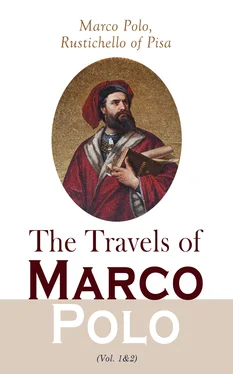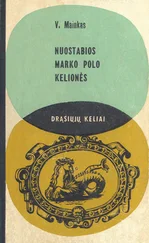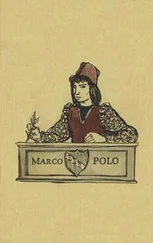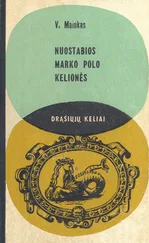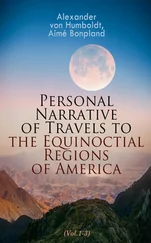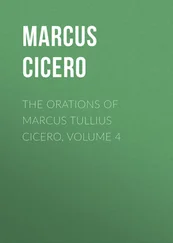And when the Three Kings beheld this marvel they were sore amazed, and it greatly repented them that they had cast away the stone; for well they then perceived that it had a great and holy meaning. So they took of that fire, and carried it into their own country, and placed it in a rich and beautiful church. And there the people keep it continually burning, and worship it as a god, and all the sacrifices they offer are kindled with that fire. And if ever the fire becomes extinct they go to other cities round about where the same faith is held, and obtain of that fire from them, and carry it to the church. And this is the reason why the people of this country worship fire. They will often go ten days' journey to get of that fire.[NOTE 2]
Such then was the story told by the people of that Castle to Messer Marco Polo; they declared to him for a truth that such was their history, and that one of the three kings was of the city called SABA, and the second of AVA, and the third of that very Castle where they still worship fire, with the people of all the country round about.[NOTE 3]
Having related this story, I will now tell you of the different provinces of Persia, and their peculiarities.
NOTE 1.—" Mire ." This was in old French the popular word for a Leech; the politer word was Physicien . ( N. et E. V. 505.)
Chrysostom says that the Gold, Myrrh, and Frankincense were mystic gifts indicating King, Man, God; and this interpretation was the usual one. Thus Prudentius:—
"Regem, Deumque adnunciant
Thesaurus et fragrans odor
Thuris Sabaei, at myrrheus
Pulvis sepulchrum praedocet." ( Hymnus Epiphanius .)
And the Paris Liturgy:—
"Offert Aurum Caritas , Et Myrrham Austeritas , Et Thus Desiderium . Auro Rex agnoscitur, Homo Myrrha, colitur Thure Deus gentium."
And in the "Hymns, Ancient and Modern":—
"Sacred gifts of mystic meaning:
Incense doth their God disclose,
Gold the King of Kings proclaimeth,
Myrrh His sepulchre foreshows."
NOTE 2.—"Feruntque (Magi), si justum est credi, etiam ignem caelitus iapsum apud se sempiternis foculis custodire, cujus portionem exiguam, ut faustam praeisse quondam Asiaticis Regibus dicunt." ( Ammian. Marcell. XXIII. 6.)
NOTE 3.—Saba or Sava still exists as SÁVAH, about 50 miles S.W. of Tehrân. It is described by Mr. Consul Abbott, who visited it in 1849, as the most ruinous town he had ever seen, and as containing about 1000 families. The people retain a tradition, mentioned by Hamd Allah Mastaufi, that the city stood on the shores of a Lake which dried up miraculously at the birth of Mahomed. Sávah is said to have possessed one of the greatest Libraries in the East, until its destruction by the Mongols on their first invasion of Persia. Both Sávah and Ávah (or Ábah) are mentioned by Abulfeda as cities of Jibal. We are told that the two cities were always at loggerheads, the former being Sunni and the latter Shiya. [We read in the Travels of Thévenot, a most intelligent traveller, "qu'il n'a rien érit de l'ancienne ville de Sava qu'il trouva sur son chemin, et où il a marqué lui-même que son esprit de curiosité l'abandonna." ( Voyages , éd. 1727, vol. v. p. 343. He died a few days after at Miana, in Armenia, 28th November, 1667). ( MS. Note. —H. Y.)]
As regards the position of AVAH, Abbott says that a village still stands upon the site, about 16 miles S.S.E. of Sávah. He did not visit it, but took a bearing to it. He was told there was a mound there on which formerly stood a Gueber Castle. At Sávah he could find no trace of Marco Polo's legend. Chardin, in whose time Sávah was not quite so far gone to decay, heard of an alleged tomb of Samuel, at 4 leagues from the city. This is alluded to by Hamd Allah.
Keith Johnston and Kiepert put Ávah some 60 miles W.N.W. of Sávah, on the road between Kazvin and Hamadan. There seems to be some great mistake here.
Friar Odoric puts the locality of the Magi at Kashan , though one of the versions of Ramusio and the Palatine MS. (see Cordier's Odoric, pp. xcv. and 41 of his Itinerary), perhaps corrected in this, puts it at Saba —H. Y. and H. C.
We have no means of fixing the Kala' Atishparastán . It is probable, however, that the story was picked up on the homeward journey, and as it seems to be implied that this castle was reached three days after leaving Sávah, I should look for it between Sávah and Abher. Ruins to which the name Kila'-i-Gabr , "Gueber Castle," attaches are common in Persia.
As regards the Legend itself, which shows such a curious mixture of Christian and Parsi elements, it is related some 350 years earlier by Mas'údi: "In the Province of Fars they tell you of a Well called the Well of Fire, near which there was a temple built. When the Messiah was born the King Koresh sent three messengers to him, the first of whom carried a bag of Incense, the second a bag of Myrrh, and the third a bag of Gold. They set out under the guidance of the Star which the king had described to them, arrived in Syria, and found the Messiah with Mary His Mother. This story of the three messengers is related by the Christians with sundry exaggerations; it is also found in the Gospel. Thus they say that the Star appeared to Koresh at the moment of Christ's birth; that it went on when the messengers went on, and stopped when they stopped. More ample particulars will be found in our Historical Annals, where we have given the versions of this legend as current among the Guebers and among the Christians. It will be seen that Mary gave the king's messengers a round loaf, and this, after different adventures, they hid under a rock in the province of Fars. The loaf disappeared underground, and there they dug a well, on which they beheld two columns of fire to start up flaming at the surface; in short, all the details of the legend will be found in our Annals." The Editors say that Mas'údi had carried the story to Fars by mistaking Shíz in Azerbaiján (the Atropatenian Ecbatana of Sir H. Rawlinson) for Shiraz . A rudiment of the same legend is contained in the Arabic Gospel of the Infancy. This says that Mary gave the Magi one of the bands in which the Child was swathed. On their return they cast this into their sacred fire; though wrapt in the flame it remained unhurt.
We may add that there was a Christian tradition that the Star descended into a well between Jerusalem and Bethlehem. Gregory of Tours also relates that in a certain well, at Bethlehem, from which Mary had drawn water, the Star was sometimes seen, by devout pilgrims who looked carefully for it, to pass from one side to the other. But only such as merited the boon could see it.
(See Abbott in J. R. G. S. XXV. 4–6; Assemani , III. pt. 2, 750; Chardin , II. 407; N. et Ext. II. 465; Dict. de la Perse , 2, 56, 298; Cathay , p. 51; Mas'udi , IV. 80; Greg. Turon. Libri Miraculorum , Paris, 1858, I. 8.)
Several of the fancies that legend has attached to the brief story of the Magi in St. Matthew, such as the royal dignity of the persons; their location, now in Arabia, now (as here) at Saba in Persia, and again (as in Hayton and the Catalan Map) in Tarsia or Eastern Turkestan; the notion that one of them was a Negro, and so on, probably grew out of the arbitrary application of passages in the Old Testament, such as: " Venient legati ex Aegypto : AETHIOPIA praevenit manus ejus Deo " (Ps. lxviii. 31). This produced the Negro who usually is painted as one of the Three. " Reges THARSIS et Insulae munera offerent: Reges ARABUM et SABA dona adducent " (lxxii. 10). This made the Three into Kings, and fixed them in Tarsia, Arabia, and Sava. " Mundatio Camelorum operiet te, dromedarii Madian et EPHA: omnes de SABA venient aurum et thus deferentes et laudem Domino annunciantes " (Is. lx. 6). Here were Ava and Sava coupled, as well as the gold and frankincense.
Читать дальше
